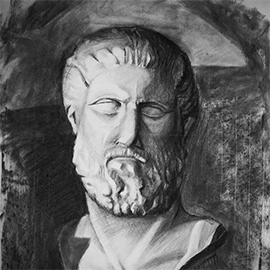Effective communication across languages is crucial in providing medical services to linguistically diverse communities in the UK’s diverse healthcare landscape. Among these, the Turkish-speaking population requires precise and understandable medical documentation, making the role of a Turkish translator for medical documents in the UK increasingly significant. This blog post explores the complexities of translating medical documents from Turkish to English, highlighting the need for specialised knowledge and skills to ensure accuracy and clarity in healthcare settings.

“…Wherever the art of medicine is loved, there is also a love of humanity…”
Hippocrates
Medical document translation is more than a simple linguistic exercise. It involves a deep engagement with the text to convey its original meaning accurately and appropriately in another language. For medical professionals and patients alike, the stakes are high. Even minor errors can lead to misdiagnoses, inappropriate treatments, or misunderstanding vital health information. The challenge is not only linguistic but also cultural, as medical terminology and patient communication styles vary widely between Turkish and English.
Given these complexities, the demand for proficient translators who can navigate both the linguistic and sector-specific nuances has never been greater. These professionals play a crucial role in the healthcare process, bridging the gap between Turkish-speaking patients and English-speaking medical staff in the UK. This facilitates a smoother healthcare experience, improves patient outcomes, and ensures compliance with medical standards and practices.
The following sections of this post will explore:
- the specific needs for specialised medical translations from Turkish to English,
- the qualifications required of translators,
- the unique challenges they face, and finally,
- the considerations involved in the costing of these services.
By the end of this discussion, the vital role of expert medical document translation will be clear, underscoring why selecting a competent Turkish to English translator is essential for effective healthcare delivery in multicultural settings.
The Need for Specialized Medical Translations
Medical translations are complex tasks that go beyond just converting language. They require a deep understanding of the medical field, following precise terminology, and adhering to local and international regulatory standards. Even the smallest details matter when translating medical documents from Turkish to English. Misinterpretation can lead to serious errors in patient care, misunderstandings of medical conditions, or improper use of medications.
The significance of medical translations from Turkish to English particularly comes into play in clinical settings, such as hospitals, clinics, and research facilities, where clear and accurate communication is essential. Medical records, consent forms, patient instructions, and pharmaceutical information are just a few examples of documents that frequently require translation. These texts contain specialised language and complex concepts that must be precisely translated to maintain their intended meaning and effectiveness.
Moreover, the growing Turkish-speaking community in the UK highlights the increasing demand for accurate medical translations. As healthcare providers strive to offer equitable services, the ability to provide high-quality, culturally sensitive translations becomes a critical component of healthcare accessibility. This not only helps deliver superior patient care but also fulfils legal obligations under the UK healthcare regulations, which mandate the provision of clear and understandable medical information to all patients, regardless of their native language.
For translators, this means a relentless focus on their translations’ accuracy and contextual relevance. They must possess fluency in both Turkish and English and a comprehensive understanding of medical terminology in both languages. Additionally, staying updated with the latest medical advances and regulatory changes is crucial. This level of expertise ensures that medical translations are accurate and align with current medical practices and terminology, enhancing the quality of healthcare communication and patient safety.
In the subsequent section, we will discuss the qualifications necessary for translators undertaking this vital work, emphasising the specialised knowledge and skills required to meet the high standards of medical document translation.
